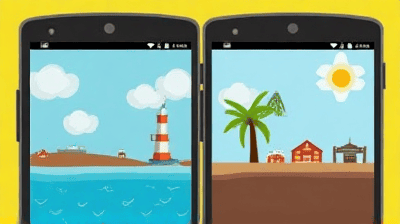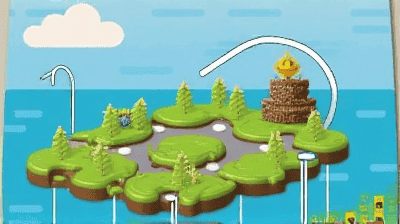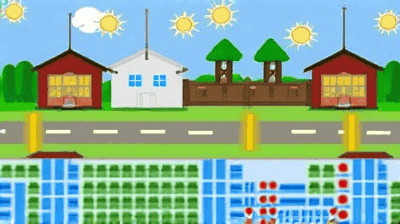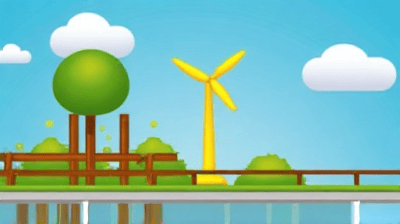
As the impacts of climate change become increasingly evident, the urgency to educate and engage the public is paramount. Traditional methods of teaching about climate issues can sometimes feel overwhelming or uninspiring, particularly for younger audiences. However, the rise of digital technology, particularly apps and games, offers innovative ways to gamify climate education, making learning about these critical issues both engaging and enjoyable.
Gamification refers to the incorporation of game-like elements—such as points, challenges, and rewards—into non-game contexts to enhance user engagement and motivation. In the context of climate education, gamification can transform learning from a passive experience into an active and participatory one. By using gameplay mechanics, educational tools can capture attention, encourage exploration, and promote social interaction.
Increased Engagement: Games attract users by making learning interactive and fun. This can capture the interest of diverse audiences, including those who may not typically engage with environmental issues.
Enhanced Retention: Interactive learning experiences tend to enhance retention of information. When users actively participate in their learning, they are likely to remember key concepts better.
Encouraging Behavior Change: Gamified experiences can motivate players to adopt sustainable behaviors in real life, reinforcing the lessons learned through gameplay.
Fostering Collaboration: Many games incorporate social elements, allowing players to collaborate, compete, and share experiences, which can enhance community building around climate action.
Accessibility: Digital games and apps can be easily accessed on various devices, making educational content available to a wider audience regardless of location.

Overview: Earth Rangers is an app designed for kids to learn about wildlife conservation and climate issues. Players can engage in various missions that promote environmental stewardship.
Features:
Impact: Earth Rangers empowers young learners to take action and understand their role in protecting the environment, fostering a sense of responsibility towards nature.
Overview: Climate Quest is an educational game that encourages players to explore sustainable practices while navigating through virtual landscapes affected by climate change.
Features:
Impact: By challenging players to think critically about their decisions, Climate Quest promotes a better understanding of sustainability and its importance.
Overview: EcoChains is a card-based game that helps players understand the carbon cycle and the relationships between different species in an ecosystem.
Features:
Impact: EcoChains fosters an understanding of ecological balance and the impact of climate change on different species, encouraging players to consider their role in ecosystem health.
Overview: The WWF Free Rivers app engages users through a fun and interactive experience that highlights the importance of freshwater ecosystems and conservation.
Features:
Impact: Free Rivers educates users about the importance of freshwater ecosystems and encourages them to engage in conservation actions that support river health.
Overview: SimCityEDU: Climate Lab is an educational simulation game that allows players to build their cities while managing resources and mitigating climate change impacts.
Features:
Impact: SimCityEDU promotes critical thinking and problem-solving skills by allowing players to experiment with urban planning and sustainability practices.
Overview: EcoVenture is an online game that invites players to explore the consequences of climate change and the actions they can take to mitigate its effects.
Features:
Impact: EcoVenture empowers players to understand the impact of individual actions on climate change, fostering a sense of agency and responsibility.
Overview: PowerHouse is a mobile app that allows users to manage their energy consumption and explore sustainable energy options.
Features:
Impact: PowerHouse encourages users to adopt energy-efficient practices in their own lives, translating in-game choices into real-world actions.
Overview: The Climate Reality Project offers various apps designed to educate users about climate change and empower them to take action.
Features:
Impact: These apps serve as powerful tools for raising awareness and mobilizing action, driving collective efforts towards combating climate change.
Before adopting any app or game, it is crucial to identify the specific learning objectives. Consider what concepts about climate change and sustainability need to be addressed and which tools align with those goals.
Different apps and games cater to various age groups, educational levels, and interests. Understanding the target audience will help determine which gamified learning tools will be most effective and engaging.
Ensure that the content within the apps and games is scientifically accurate and aligns with recognized climate science. Look for educational endorsements or collaborations with reputable organizations to validate the credibility of the resources.
Evaluate how engaging the app or game is. Features such as challenges, rewards, and interactivity can enhance user experience and promote prolonged participation, making learning more impactful.
Many successful apps and games include social components, allowing users to collaborate, share experiences, and challenge each other. This fosters a sense of community and collective action around climate issues.
Accessibility is critical when choosing educational tools. Ensure that the app or game can be easily accessed on various devices, including smartphones, tablets, and computers, so that more users can benefit from it.

Overview: Climate Challenge is an online simulation game where players assume the role of a government leader tasked with managing a nation’s response to climate change.
Implementation:
Impact:
Overview: Project Noah is a real-world application that encourages users to document and share wildlife and ecosystems, contributing to biodiversity mapping.
Implementation:
Impact:
Overview: Climate Quest is an interactive learning platform that uses gameplay mechanics to teach users about the impacts of climate change and how to mitigate them.
Implementation:
Impact:
Advancements in AR and VR technologies present exciting possibilities for gamifying climate education. Immersive experiences can transport users to diverse ecosystems, allowing them to explore the effects of climate change firsthand and visualize potential solutions.
AI can enhance gamified learning tools by personalizing experiences based on user behavior and preferences. Intelligent algorithms can adapt challenges, provide tailored feedback, and offer insights that encourage users to explore further concepts about climate change.
Future educational applications may focus on collaborative learning experiences, allowing users to connect globally, share their climate actions, and work together on sustainability challenges. Such platforms can promote social awareness and foster a sense of collective responsibility for the planet.
Incorporating real-world data and research into gamified applications will enhance the relevance and accuracy of climate education. By utilizing evidence-based findings, users can gain insights into the latest scientific developments and policy solutions related to climate change.

Gamifying climate change education through apps and games presents an exciting opportunity to engage diverse audiences in meaningful learning experiences. By transforming complex information into interactive and enjoyable formats, these tools can foster a deeper understanding of climate issues and promote sustainable behaviors.
As digital technology continues to evolve, the potential for gamified learning will expand, offering even more innovative approaches to addressing the urgent challenge of climate change. By harnessing the power of play, we can inspire individuals to become informed advocates and active participants in the fight for a sustainable future.